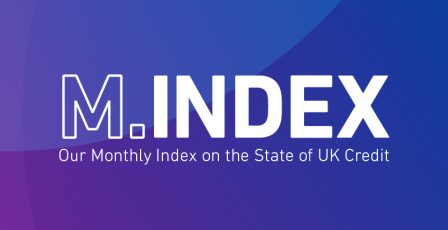How data could open up responsible lending for small businesses
Commercial lending is trending down, but what does it mean for the UK’s SMEs?
Mike Conroy, Director of Banking and Finance Trade Association, UK Finance, and John Griffiths, Experian’s Market Engagement Director in Credit & Risk, Business Information, discussed the state of commercial lending – and why improving small businesses’ credit data could open up access to better funding.
With high interest rates, slowing consumer demand and increasing costs, it’s unsurprising that fewer commercial loans are being granted. The impact of the pandemic’s financial support measures is also being keenly felt. £48 billion in support was offered during Covid-19, with more than a fifth of the UK’s five million SMEs receiving money from the Bounce Back Loan Scheme (BBLS).
Mike revealed that more small businesses are turning to non-high street lenders. More than half of all SME lending is provided by challenger banks, and John pointed out that alternative borrowing, like asset finance, is becoming a popular way to realise their ambitions. But what does this mean for the commercial credit data that influences many lenders’ decisions?
Evolving commercial data sharing
Under the Commercial Credit Data Sharing (CCDS) initiative, the UK’s nine largest banks must make information about SME lending and credit card activity available to four designated credit agencies – including Experian. The initiative was aimed to increase competition for lending to give smaller businesses access to a broader range of lending options. John believes it has succeeded there, offering better insights into business cash flow and affordability.
Credit information is absolutely vital in the SME finance market. It has a very important role in the process of credit assessment and facilitating the availability of finance.
Mike Conroy, Director of Banking and Finance Trade Association, UK Finance
Mike suggests the scheme should be expanded to include wider data sharing from non-designated lenders. Information like current account balances, which have double the value of gross commercial lending, could paint a better picture of a small business’s financial health – helping more businesses access transformative credit.
Increasing businesses’ creditworthiness
Though affordability has been squeezed by higher interest rates, Mike and John outlined how high-quality data will allow small businesses to demonstrate their borrowing power more accurately. Mike also believes there should be more educational resources for business owners to help them understand what lenders look for in an application.
Listen to the podcast
To hear Mike’s and John’s full insights, including their expert guidance on how small and medium sized businesses can quickly and easily improve their creditworthiness, listen to the full episode of our podcast now.
How can we help?
With 4D Credit, you get access to the widest possible data universe at your fingertips for a complete view of how the macro-economic environment – including high interest rates, high energy costs and unstable customer confidence – is impacting commercial customers.
4D Credit leverages data from Experian’s up-to-date industry-leading sources of information on UK SMEs and sole traders (including commercial CATO data, CAIS data and Payment Performance data with over 6 million ledger transactions) to drive and inform your lending decisions.
Discover 4D Credit
Unlock your commercial lending intelligence with a 4D view of your customers' credit profiles.
Let's go









